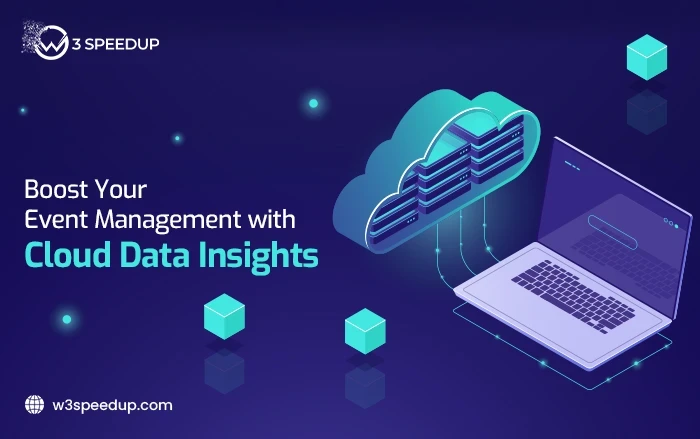Modern society is closely associated with a high speed of life and timely organization of events, and, therefore, modern event management can only be based on advanced technologies and ideas. Among these technological innovations is cloud analytics, which has transformed the industry in many ways. Through cloud analytics, event managers can obtain crucial information, fine-tune their methods, and guarantee the effectiveness of events. For additional information, let us learn how unleashing the power of cloud analytics can enrich your event management plans.
Understanding Cloud Analytics
Cloud analysis refers to the use of cloud computing as a way of processing data and arriving at a desired result. Cloud analytics harnesses cloud computing and is not to be confused with the more conventional approach to analytics that requires the establishment of infrastructure and hardware equipment. It means that event managers can work with significant amounts of data, both the input and the output, in real-time, from any location and at any time.
Some of the data that can be collected from the cloud include social media data, ticketing data, feedback from attendees, and financial reports. The systematic approach to the data collected in this research enables event managers to make the appropriate decisions, ensure that their attendees are satisfied, and boost resource management.
By incorporating social media archiving solutions, event managers can also securely store and retrieve social interactions, ensuring compliance and improving decision-making.
Enhancing Event Planning and Execution
Another advantage of cloud analytics in event management is that it improves event planning and staging. Event managers can then ascertain these patterns and behaviors to anticipate attendees’ actions. This predictive ability allows them to develop marketing promotions targeted at specific segments, estimate the level of facility visits, and provide resources accordingly.
For example, cloud analytics can help determine the most efficient marketing platforms that compel consumers to buy tickets so that event managers can direct their marketing expenditures in the right direction. Finally, analyzing the data in real-time during the event also helps the managers get an idea of how the attendees are interacting with the event and can help them make instant changes to the event to make it much better.
In addition, it can enhance certain logistical aspects of event management through the adoption of analytics in cloud computing. By understanding attendee flow and behavior, event managers can position the graphics correctly and manage the traffic as it flows within the specified venue. These insights removed potential bottlenecks and lowered waiting time, improving the event’s quality.
Personalizing Attendee Experiences
In today’s cutthroat competition, event attendees must be impressed and engaged, and that can only be done effectively and efficiently if personalization is encouraged. This is where cloud analytics come in handy, as they help provide important data on attendees, their behaviors, and even their demographics.
Event managers can obtain useful attendee data to categorize the audience and engage them with custom content. For instance, segmenting the attendee list based on the event and developing targeted email marketing campaigns to inform the customers about relevant information and provide them with exclusive special offers is possible. The attendees can also get sessions, exhibitors, or even networking recommendations to improve the attendee’s engagement and satisfaction during the event.
Also, feedback and sentiment analysis can be gathered in real time using the cloud analytics feature. By observing social media timelines, event polls, and feedback forms, event managers can see attendees’ reactions and fix them if necessary. Such a strategy shows that the satisfaction of event attendees is paramount and contributes towards an event’s positive image.
Optimizing Financial Performance
It is important to note that financial management plays a key role. Cloud analytics can help improve an organization’s financial position by offering insights into revenues, costs, and returns on investment.
When purchasing tickets, customers look into the cost of an event, and thus, through studying patterns of ticket sales, event managers can come up with measures that help maximize revenue. They can also monitor the effectiveness of promotion and sales campaigns and match prices with demand. Such an approach to collecting and analyzing data allows event managers to make sound decisions that can benefit their financial standing.
Furthermore, with the use of cloud analytics, it becomes easier to find ways to reduce costs. Expenditure data analysis reveals where and how event managers can save money that otherwise could be spent on the event while not losing quality. For instance, they can have better negotiating power with suppliers, manage the number of employees, and avoid unnecessary expenses.
Additionally, cloud analytics helps event managers measure ROI and other indicators correctly. By analyzing marketing communications received, one can evaluate the returns on investment in campaigns, sponsorships, and partnerships. It also creates an environment for assessing the performance of these partnerships to make informed decisions about future partnership strategies and resource allocation.
Conclusion
Managing events has become a dynamic field, and it is imperative for event organizers to utilize cloud analytics. The extent to which it is possible to obtain and process large quantities of data in real-time can help event managers better understand their audiences and improve factors such as ticket sales and overall revenues. The event manager must make the most of the cloud analytics feature to increase their strategies, compete, and achieve the objectives of the events.
 Christmas Mega Sale – Enjoy Up to 50% OFF on Every Plan!
Christmas Mega Sale – Enjoy Up to 50% OFF on Every Plan! 



